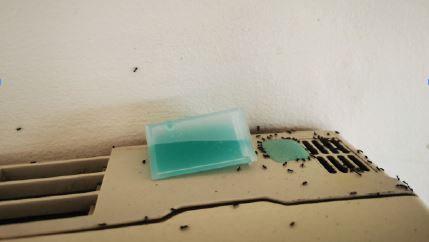
Spiderban North Canterbury Ltd owner Brian Walker, who lives in Darfield, said the insects had been spreading out from Christchurch in the last five years.
“Rolleston is being hammered, and we had a call last week, first one from West Melton,” Walker said.

The insects had a headstart getting into homes this summer after last year’s mild winter.
Some could also have shifted out of the ground with heavy rain early in the winter, while building site work could also dislodge populations and send them into nearby homes.
"They can be in unusual places, setting up nests in ceiling spaces and around the kitchen, in wall cavities," Pongracz said.
"They know how to find food and sometimes they travel quite a way for a little bit of food."
He mainly treats Christchurch homes, but this year he had also been called to Lincoln and Rolleston.
Ants could exist in homes in their thousands, and those seen crawling around inside were generally just five per cent of the nest population.
In some homes they were particularly pervasive, crawling over the bed at night and into gym bags attracted by the sweat in clothes.
“What I’m hearing more from customers is they have never had ants before, they are bad this year,” Pongracz said.
His advice was to store food away, even putting it into airtight plastic containers.
Lincoln University ecologist Mike Bowie said from his observations ants had been increasing in the area in the last four years or so.
“The milder winters and hotter summers would help with their survival and dispersal southwards. Low temperatures is usually the limiting factor.”
Even the highly invasive argentine ant, which was in Christchurch, would eventually disperse further south, due to global warming.













